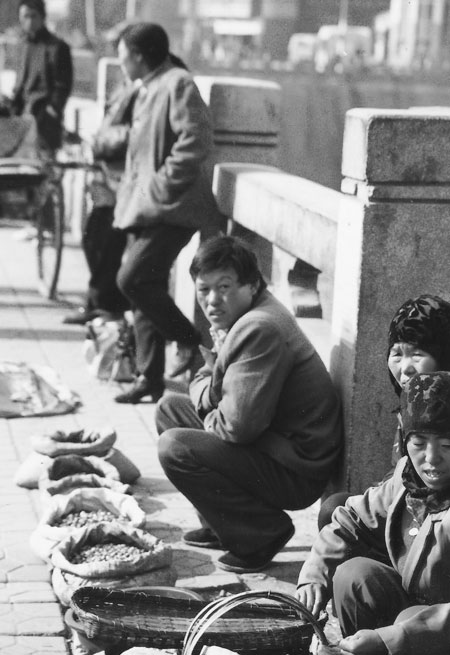Xining - Historic gateway to the Qinghai-Tibet Plateau
By Bruce Connolly | chinadaily.com.cn | Updated: 2018-04-04 08:02

Xining boasts several sites of religious significance, such as Dongguan Mosque. Also19 km southeast of the city at Huangzhong, high in a serene valley is 16th century Ta’er Monastery. Its establishment raised Xining’s significance as one of the leading centers for the ‘Yellow Hat’ sect of Tibetan Buddhism. A visit to Xining could not be complete without experiencing the tranquility and wonders of Ta’er. From the town a road led up to a pailou arch and entrance to the large monastic compound. On important dates during the year major festivals take place at Ta’er, including ‘Sunning the Buddha’ when a great thangka, or religious tapestry, is rolled out on the hillside. It's a colorful time when many monks and visitors engage in dance and traditional musical performances.
Approaching the main square I was fascinated by a line of eight white chortens or stupas - monks and visitors on pilgrimages would walk around in a clockwise direction, frequently stopping to pray. The stupas act as symbols in the life of the Sakyamuni Buddha. Ta’er attracts people from across Northwestern China and surrounding countries - for me, again, it was fascinating to look at their costumes while wondering where the people came from?
The monastery was made up of several separate buildings, each of significance - for prayer, for administration and for living quarters. The Hall of Butter Sculpture is famed for miniature models of animals, people, flowers, landscapes and so on, all carved from yak butter. I continued walking uphill in beautiful sunshine, passing stupas and prayer flags set amongst trees turning autumnal golden. Arriving at the Nine Roomed Hall, dating from 1592, I ventured into its central courtyard. Many worshipers filled the space, some working their way along lines of rotating prayer wheels. Others performed prostrating rituals on the wooden floor - some may do thousands of such movements during their visit to Ta’er. In a yard enclosed by red wooden balconies monks sat on the floor in their maroon robes - chatting, they would stop, smile and welcome me.
Above the monastery ran a scenic ‘korla’ or trail that many pilgrims would follow again in a clockwise direction. The views were stunning of the compact forested valley and of the many halls with their roofs holding distinctive features of Buddhism.
























